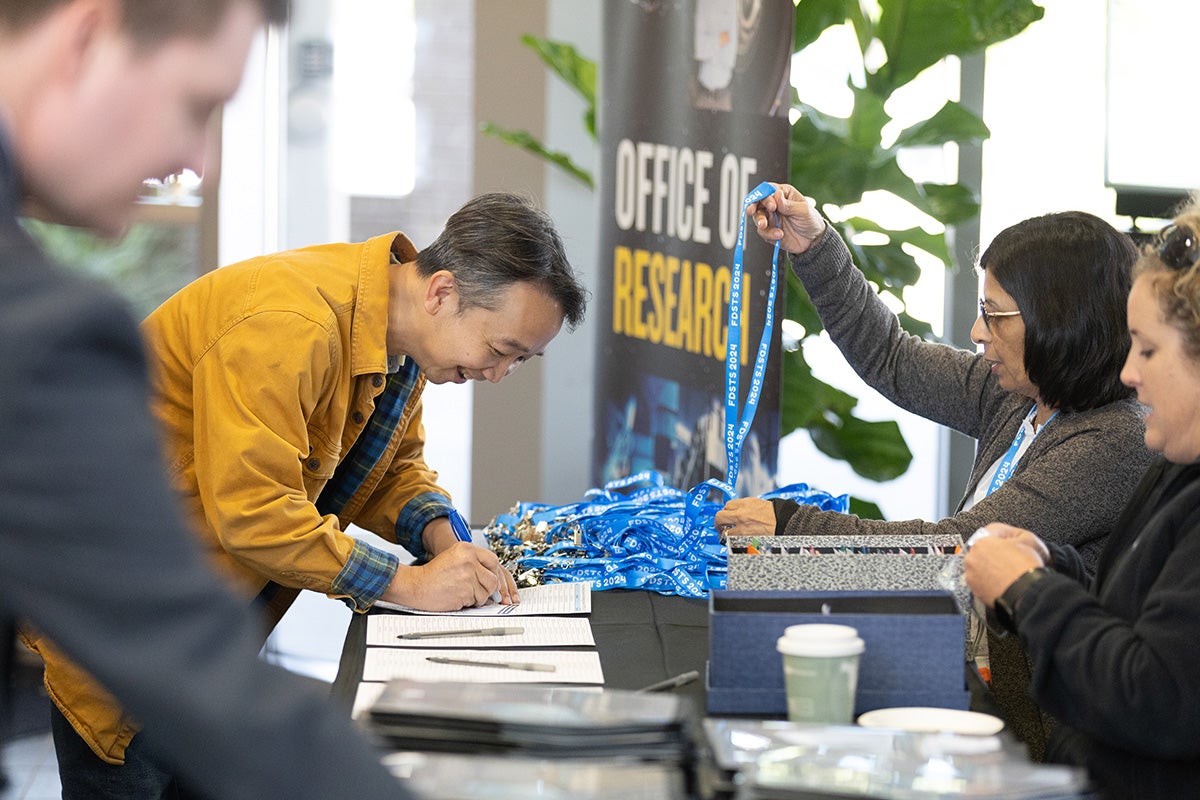Nearly 200 participants from the Florida State University System and the U.S. Department of Defense (DoD) gathered at UCF on October 17-18 for the first Florida Defense Science and Technology Symposium (FDSTS) to learn from each other and to strengthen research partnerships.
UCF hosted the symposium on its main campus and co-hosted the event with the University of South Florida and the Florida High Tech Corridor.
The symposium brought together some of the best minds in Florida to equip them with the skills and knowledge to successfully engage with DoD.
In addition, the symposium featured presentations and lectures by distinguished speakers on opportunities within various DOJ agencies, strategies for creating winning proposals, building effective relationships between research faculty and DOJ officers, identifying and cultivating areas critical research and development, poster presentations and faculty lightning talks. . Collaborative research and discussion focused on artificial intelligence (AI), cybersecurity, modeling and simulation, space technologies, and lasers and optics.
Participants included representatives and officers of local and federal defense agencies from the Defense Advanced Research Projects Agency (DARPA), the Air Force Research Laboratory (AFRL), the Office of Naval Research (ONR), the Army Research Office (ARO) ) and the USA. Special Operations Command.
Attendees also had plenty of opportunities to strengthen their connections with one another between panels, during breaks, and in networking sessions.


UCF Vice President for Research and Innovation Winston Schoenfeld echoed the sentiments of President Alexander N. Cartwright in his commencement address by highlighting UCF and Florida’s record of fostering meaningful research.
“Here at UCF, we have a rich history of outstanding research in key defense areas such as hypersonics, optics, directed energy, cyber security, [AI]and modeling and simulation – just to name a few,” Schoenfeld told attendees on the second day of the symposium. “Our research in these areas has benefited from significant DoD support—with more than 30% of our federal funding coming from DoD sources for more than a decade.”
He also encouraged attendees to take advantage of the opportunities at the symposium.
“With a deep well of talent, expertise and interdisciplinary research, Florida’s academic institutions are uniquely positioned to address emerging security and defense needs and challenges,” said Schoenfeld. “This symposium will help ensure that we leverage this in our institutions through greater awareness and stronger alignment with the nation’s defense priorities.”
Sylvia Wilson Thomas, USF’s vice president for research and innovation, also echoed Schoenfeld’s desire for collaboration.
“There is an opportunity for us to have a unique impact on the entire defense industry,” she said. “We want program officials here to embrace what we have to offer.”
The symposium was well received and organizers hope it will become a regular event, said Saiful Khondaker, UCF’s vice president for research advancement.
“It was wonderful to see so many faculty and program officials come together,” he said. “The promise to continue advancing our partnerships and developing critical technologies is exciting. With the success of this symposium, we are optimistic that we can bring everyone back together and continue this momentum.”
Learn more about FDSTS here.
